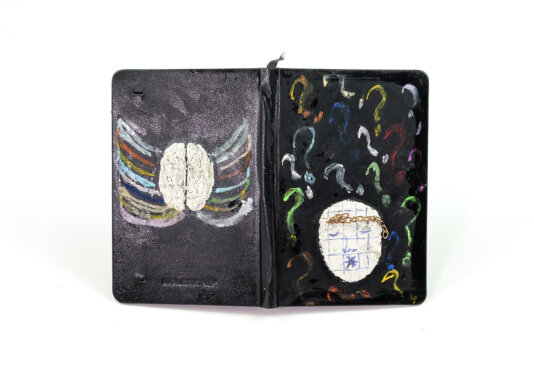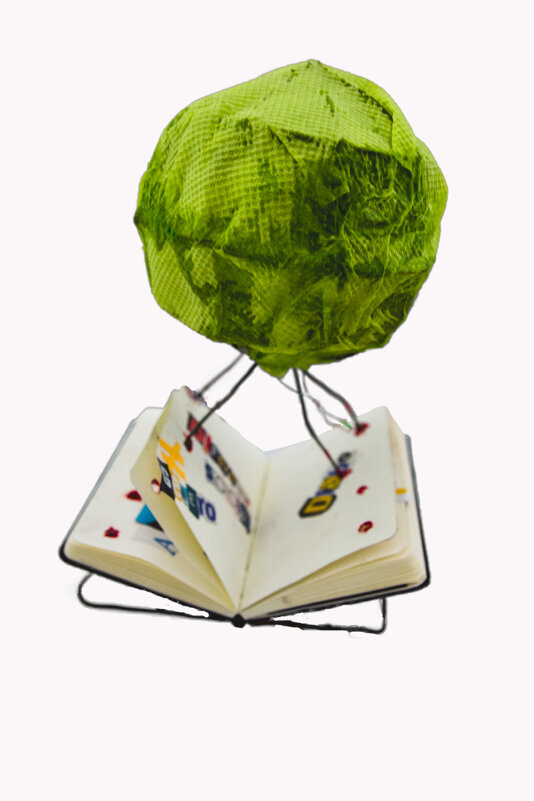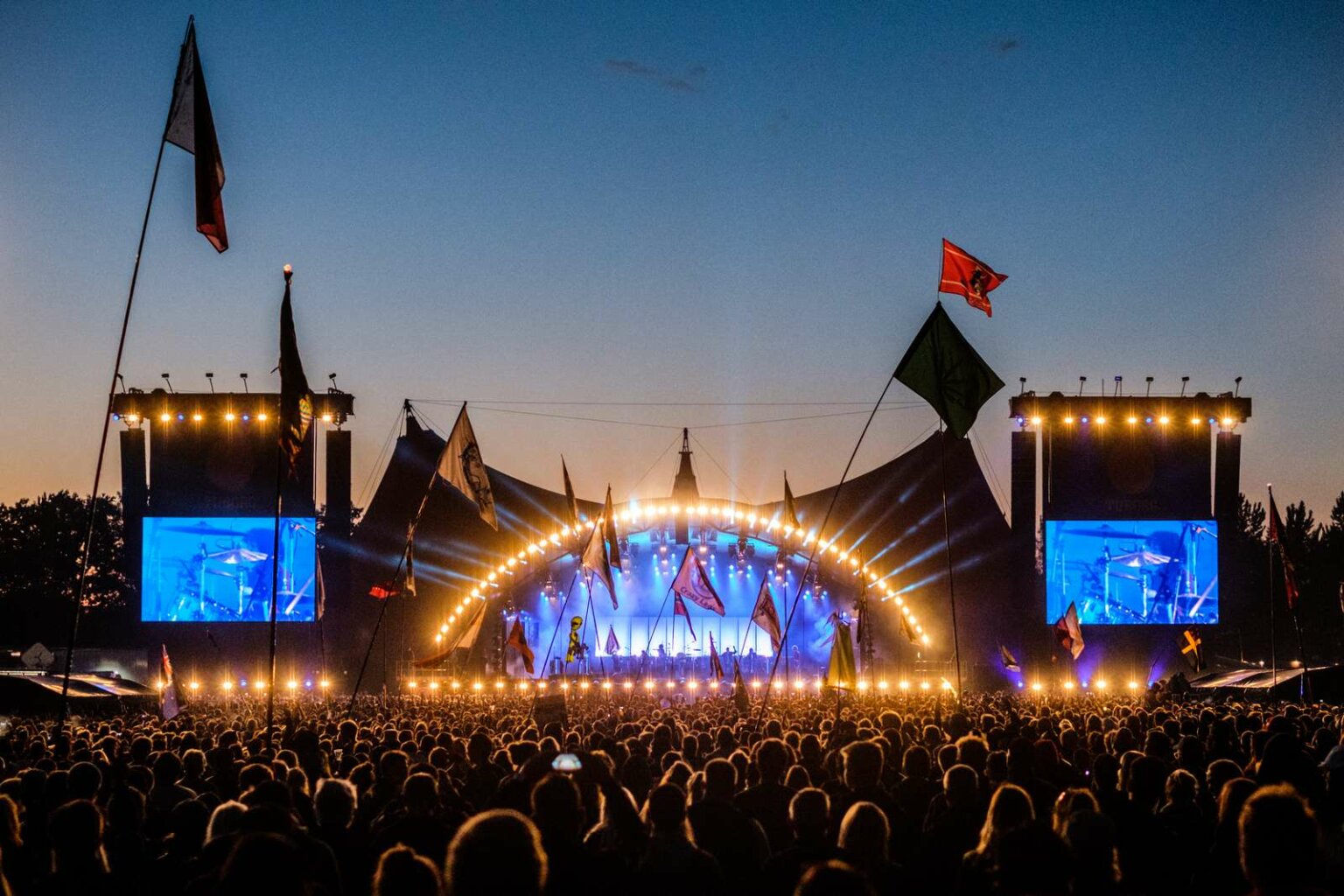- About
- Topics
- Picks
- Audio
- Story
- In-Depth
- Opinion
- News
- Donate
-
Signup for our newsletterOur Editors' Best Picks.Send
Read, Debate: Engage.
| October 26, 2020 | |
|---|---|
| topic: | Arts |
| tags: | #art, #Social Change, #global community, #migrants, #Africa, #global south, #NGO |
| located: | USA, Gabon, Mozambique, Italy, United Kingdom |
| by: | Yair Oded |
Throughout 2019, 90 young people from around the world participated in a Moleskine Foundation workshop titled Where is South?, in which they were encouraged to deconstruct, humanise, and personalise the abstract concept of ‘south.’
As part of the workshop, the participants, which included young people from London, Gabon, Mozambique, New York City as well as refugees and immigrants from Nigeria, Gambia, Cameroon, and Pakistan living in Italy, engaged in thorough, in-depth conversations and debates, where they expressed their personal interpretation of ‘south’ by transforming notebooks into artworks.
The artworks are now presented in a virtual exhibition on the Moleskine Foundation’s Instagram page. The exhibition and workshops were organised by AtWork, an educational initiative of the Moleskine Foundation designed to inspire a new generation of creative thinkers.
Participants of the “Where is South” exhibition became part of a global network of alumni, who often collaborate on joint initiatives and channel the skills and insight they gained through the workshop into efforts to improve their own communities.
“As a foundation we say ‘our mission is creativity for social change’,” Moleskine Foundation co-founder and AtWork programme director Elena Korzhenevich told FairPlanet. “We really promote this idea that creativity can be one of the key drivers to make some positive, tangible change in society.”
AtWork, one of the Moleskine Foundation’s key educational programmes, was established in 2012, and has since traveled across more than 14 countries in three continents, and 20 cities.
Each year, AtWork organises 5-day intensive workshops at different locations around the world. During these workshops, 25 young people (aged 18-27) are presented with a general question that may seem simple to answer at first glance, but in fact serves as “an entry point to start a very deep identity journey,” said Korzhenevich. It encourages them to revisit deeply-entrenched conceptions of identity, culture, borders, nationality, and history.
The workshops foster “a very safe space to talk about a lot of issues that can be taboos in certain societies,” Korzhenevich explained. “We can talk about religion, we can talk about sexuality, we can talk about freedom of speech in places that have censorship, in places that have death penalties for being homosexual [...] but AtWork really creates this space of no judgement.”
Workshops are curated and led by Moleskine Foundation advisor and AtWork co-creator Simon Njami — a prominent author, philosopher, and art curator — and are held in a setting that seeks to break the boundaries of traditional education methods. To that end, sessions are conducted in circles at unconventional locations, such as galleries and parks, whenever possible. The first three days of each workshop are dedicated to group discussions and brainstorming, at the end of which participants construct their personal answers to the question at hand. Once their ideas are approved by the group, each participant transforms their notebook into a creative expression of their answer. “They become sculptures, they tear out the pages, they burn them,” said Korzhenevich, “[The notebook] is just a point of departure and then they have a complete creative freedom to transform them; to express whatever their answer to the question is.”
Once the workshops are completed, AtWork organises a local exhibition of the creative outcomes in each of the cities where the workshops took place. At the end of the tour they normally hold a final exhibition of all of the participants’ work. Due to the outbreak of Covid-19, this year’s final exhibition had to be held digitally through a Zoom event and the Instagram takeover.
Workshops are completely free of charge for the participants and are funded by scholarships given out by the Moleskine Foundation. AtWork places its main focus on under-served communities, striving to empower young people who wouldn’t ordinarily have access to such educational opportunities. Yet, their team makes sure to create hybrid environments, as was the case in this year’s workshop in Venice, Italy, where roughly 90 percent of seats were reserved for refugees and asylum seekers and an additional 10 percent were allotted to Italians.
AtWork collaborates closely with partners on the ground in each city in order to identify applicants and select the participants. “Where is South?” was the result of tight collaboration between AtWork and The Africa Centre in New York City, Tate Modern in London, the United Nations High Commissioner for Refugees (UNHCR), the National Museum of Gabon, and the National Museum of Mozambique.
Last year’s workshops (whose creative outcomes are now presented in the exhibition) had participants grapple with the question, “Where is South?”. While it seems, on the surface very straightforward, this question had set participants on a winding journey of self-discovery that resulted in unique interpretations of the term ‘south’.
And while organisers of the workshops are aware that the concept of south inevitably connotes an artificial and discriminatory world order that endows North and South with intrinsic labels of superiority and inferiority, they encouraged participants to look beyond the political aspects of the term and explore a more personal truth concerning the concept of south.
“Of course it’s a political question, and we cannot deny political connotations in it,” said Korzhenevich, “but it’s not the central objective. For us ‘south’ is personal. It’s about an individual, it’s about questioning every term that we use, and [...] if you deconstruct [the term ‘south’] it’s simply a direction. Because New York is south to somebody standing north of New York. It’s all relative.” “And that’s [...] the AtWork process,” she added, “it’s about deconstructing old notions and arriving at the original meaning of words, of concepts, and always speaking for yourself and not by some societal formulas that are being created constantly to carry certain political agendas.”
For Nosakhare Ekhator, a Nigerian immigrant in Italy who participated in AtWork Venice, south represented “freedom” from what he defines as “a cage of lies” forced upon African immigrants and migrants.
From an early age, Ekhator had a desire to become a fashion designer, something he viewed as “an unattainable dream” to achieve in Nigeria. Four years ago, Ekhator and his brother embarked on the perilous journey to Europe, travelling through Libya and crossing the Mediterranean on a boat, and finally arrived in Italy. There, Ekhator experienced continued discrimination. “The first time I went for my document,” Ekhator told FairPlanet, “one officer said ‘you Nigerians, you’ll never get a document here’. He said we are nuisance, we are good for nothing. We don’t offer anything good to the community.”
For a long time, Ekhator said, he gave himself “excuses” as to why he shouldn’t act on his talent: the struggle to sustain himself financially in a society that largely discriminates against African immigrants being one of them. But his experience at AtWork changed that. “After AtWork I could not see things the same again; I was now seeing things differently. Some things that I’ve heard before going to AtWork Venice, it became very clear to me that these things are lies. And it changed me mentally,” Ekhator said.
“As an African, being black, people see it as a trait,” Ekhator said, adding that for years the message he had received from society was that “Africans can’t make it here, Africans can’t make it there. And I’ve come to understand that most of these things are just lies, and once you believe them it becomes like a cage [...] and it’s very very hard to get out from. And until you break out from this cage you’re made to live like … you can’t dream, you can’t make ambition for yourself. So when I discovered those lies that was what led to my freedom.” “I can proudly say that AtWork Venice set me free from those mentalities,” he added. “Now I’m trying to set my own fellow brothers free, because this cage is the biggest cage we are in as Africans, our mentality. If we can change the mentality then we can achieve anything.”
After completing the AtWork workshop, Ekhator received a full scholarship to study fashion design at one of Italy’s most prominent universities.
Azarias Junior Hele, a graphic designer from Maputo, Mozambique, defined his south as “conviction” in his conversation with FairPlanet. This conviction, he stated, was represented in his notebook in the shape of a large orb hovering over the pages, which he views as “a ball of power.” “It’s got inner power that sustains itself,” he said, “and then it’s also sustained in some words, and these words are the things that I fight against. There are some like ‘social difference’, ‘gender difference’.”
Hele described his AtWork experience as one that honed his critical thinking skills and enabled him to express himself more comfortably around others. “At times I had difficulties to share my experience, share my feelings, my thoughts to different people,” Hele said, adding that “[W]e, Mozambicans, we are a little bit closed as people, we don’t like to share some big things, we don't like to express it so freely. That’s why we still have some taboos.” These taboos that precluded him from uninhibited self-expression historically, Hele said, “were broken during this project, because we have to say things with no fear [...] AtWork really taught me to share my ideas, to open my mind, to express myself freely.”
The impact of AtWork's workshops extends far beyond the personal transformative experience of each participant, as the young creatives formulate a growing network of visionary thinkers who are dedicated to empowering their communities and using the skills and insights they gained in order to affect societal change.
“They have a Facebook group online, where they can connect because they have all been through this very transformative experience,” said Korzhenevich, “and if you live in London you can talk to people in Mozambique or in Addis Ababa and New York, and it really creates an international community of young people who are thinking, who are reflecting, who are trying to do something, to make a positive change in their communities.”
Bunny Claude Massassa, a 2018 AtWork alumni, was inspired by her AtWork experience in Uganda to become an artist and a cultural entrepreneur, and had set out to address the lack of independent cultural spaces in her hometown of Libreville, Gabon. Massassa founded her own NGO, called Mukasa, and through it brought AtWork to Libreville in 2019. Now, with the help of other AtWorkers, Massassa is working on opening Dwabe: Libreville’s first non-institutional cultural space, where people would have an opportunity to engage in critical debate and discussions about creativity.
Hele, too, told FairPlanet that he remains in touch with AtWorkers from around the world. He now works with a community of fellow creatives who attended the workshop in Mozambique to create additional workshops in Maputo. This month, Hele created a promotional video and has been engaged in brainstorming and logistical planning in order to bring the workshop back.
Beyond the interpersonal relationships forged by AtWork, the initiative also inspires international collaborations between cultural institutions and organisations. “The uniqueness of AtWork is that it puts very different cultural organisations that would never be part of the same platform,” said Korzhenevich. “So you take Tate Modern and then you take the National Museum of Gabon or National Museum of Mozambique and The Africa Center, you have three continents, four cultural organisations that suddenly are part of the same programme, and that put them into networks and exchanges that are being born.”
Through its workshops, exhibitions, and growing networks, AtWork strives to unlock the creative potential in each of the participants, recognising that, in an increasingly automated world, creativity and critical thinking are becoming vital skills for both personal evolution and the spawning of positive leadership.
“A lot of people talk of creativity, and a lot of people talk about social change,” said Korzhenevich, “but not a lot of people put them together.”
AtWork grapples with the most beautifully complex aspects of our society — delineating the limits of our preconceptions and emphasising the need to break free from crippling social-constructs and developing independent views, while illuminating a shared human experience and the truth of our interconnectedness. It underscores the value in empowering one mind, one community at a time.


By copying the embed code below, you agree to adhere to our republishing guidelines.

